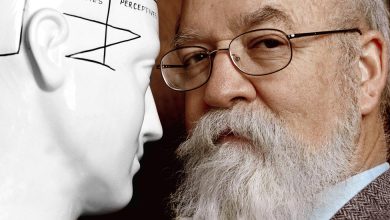McConnell Warns Against ‘Radical’ Supreme Court Pick

WASHINGTON — Lawmakers from both parties and both houses of Congress on Thursday rushed to influence President Biden’s choice for the first Black woman to serve on the Supreme Court, with Republicans warning against a “radical” pick and a senior Democrat pushing what he called a consensus choice.
Senator Mitch McConnell of Kentucky, the Republican leader who engineered a blockade of the last nominee from a Democratic president, Merrick B. Garland, issued a warning to Mr. Biden against making an overly ideological choice to succeed Justice Stephen G. Breyer, who formally announced his retirement on Thursday.
“The American people elected a Senate that is evenly split at 50-50,” Mr. McConnell said in his first statement since word of the retirement leaked. “To the degree that President Biden received a mandate, it was to govern from the middle, steward our institutions and unite America. The president must not outsource this important decision to the radical left. The American people deserve a nominee with demonstrated reverence for the written text of our laws and our Constitution.”
But he also told reporters in Kentucky that he would give the eventual nominee “a fair look.”
The president promised a nominee by the end of February, and Republicans are signaling that they would like a drawn-out process before any vote to replace Justice Breyer, unlike the speedy confirmation processes that put Justices Amy Coney Barrett and Brett M. Kavanaugh on the court. Justice Breyer indicated he would like to complete the current term, with major decisions likely this summer.
But the Senate majority leader, Chuck Schumer of New York, said on Thursday that he would move with haste, and Democrats on the Senate Judiciary Committee, scattered on recess, held a video conference on Thursday afternoon to plot the path forward.
“The Senate will have a fair process that moves quickly so we can confirm President Biden’s nominee to fill Justice Breyer’s seat as soon as possible,” Mr. Schumer said in a statement.
Democrats are confident that the first Black female nominee will be given deference that others like Mr. Garland, now Mr. Biden’s attorney general, did not enjoy.
“I look forward to a nominee who has such a compelling life story with such immensely impressive qualification that the country and all my colleagues will support her,” Senator Richard Blumenthal, Democrat of Connecticut and a member of the Judiciary Committee, said on Thursday. “We’re talking about a Black woman who will be making history, and we will be making history as well — the right kind of history.”
But citing Mr. Garland’s experience, he added, “We need to be ready and willing to fight, and fight ferociously.”
With Mr. Biden still weighing his options, one of his most powerful and important Democratic backers, Representative James E. Clyburn of South Carolina, pressed his case — loudly and publicly — for his favored candidate, Judge J. Michelle Childs. Mr. Clyburn argued that Judge Childs would sail through the Senate with bipartisan support, including with the backing of her state’s two Republican senators, Lindsey Graham and Tim Scott.
“We have two Republican senators from South Carolina,” he said at a Washington Post event. “Both of them know Michelle Childs very well, and both of them have spoken highly of her. Republicans all over the state think she is an outstanding jurist.”
A pick who has Republican support would speed the process. Aides to Senator Charles E. Grassley of Iowa, the top Republican on the Judiciary Committee, agreed that Judge Childs could earn some measure of Republican support.
But she might not be alone. Mr. Graham and two other Republican senators, Lisa Murkowski of Alaska and Susan Collins of Maine, have already voted to confirm another potential nominee, Judge Ketanji Brown Jackson, to the powerful U.S. Court of Appeals for the D.C. Circuit, where Supreme Court justices are often seasoned. Judge Childs’s nomination to the same appellate court is pending before the Judiciary Committee.
For now, talk of bipartisanship has not scared liberal groups, which want a progressive nominee and like the names on the short list: Judge Jackson, Judge Childs and Justice Leondra R. Kruger of the California Supreme Court.
“These are each women who are at the height of their profession,” said Fatima Goss Graves, the president and chief executive of the National Women’s Law Center. “We have historic, groundbreaking firsts” up for consideration.
Mr. Clyburn, the House majority whip and the highest-ranking Black lawmaker in Congress, resurrected Mr. Biden’s flagging quest for the Democratic presidential nomination in 2020 by endorsing him before the South Carolina primary. And the congressman has never been shy about using the clout he attained from that singular endorsement to press his case.
As for Mr. McConnell, it is not clear what he could do to block a nominee, after he personally engineered a Senate rule change in 2017 to ensure that a Supreme Court pick can be confirmed with a simple majority vote. On Thursday, there was talk that by withholding a quorum for voting on a nominee, Republicans on the Senate Judiciary Committee could block a vote. But even that seemed far-fetched, since such a provocation could force Democrats to unite around a rules change to bring the nominee to the floor.
If Republicans join in opposition to his nominee, Mr. Biden will need the support of all 50 Democratic and independent senators to win her confirmation, and if Mr. McConnell labels the president’s pick “radical,” it could ratchet up pressure on the party’s centrists to withhold their backing.
One potential object of a pressure campaign would be Senator Kyrsten Sinema, Democrat of Arizona, whose positions so far have helped block a far-reaching voting rights bill and stymie a social safety net and climate change measure. But Ms. Sinema has been relatively liberal on Supreme Court nominees.
“I look forward to fulfilling my constitutional duty to provide advice and consent by thoughtfully examining the next nominee based on three criteria: whether the nominee is professionally qualified, believes in the role of an independent judiciary and can be trusted to faithfully interpret and uphold the rule of law,” she said on Thursday.
Mr. Clyburn’s campaign is unusual, since as a House member he has no vote on the eventual nominee. But that did not stop him from pressing the case for Judge Childs of the U.S. District Court in South Carolina, who is a former circuit court judge in the state’s capital, Columbia, and a labor law expert.
“There’s nobody sitting on the Supreme Court today that can tout the background, experience, life and profession that Michelle Childs would bring to the court. It’s just that simple,” Mr. Clyburn said at the Washington Post event.
Mr. Biden first made his pledge to nominate an African American woman to the Supreme Court in South Carolina before that state’s critical early primary, at Mr. Clyburn’s urging. But Judge Childs is not the most experienced jurist in the potential pool of nominees.
Luke Broadwater contributed reporting.




